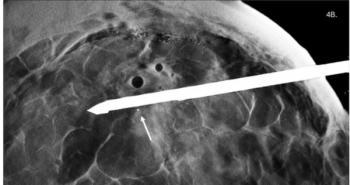
Philips strikes R&D pact
Philips Medical Systems and Theseus Imaging, a subsidiary of North American Scientific, have agreed to collaborate on research aimed at improving methodology for the noninvasive imaging of cardiac cell
Philips Medical Systems and Theseus Imaging, a subsidiary of North American Scientific, have agreed to collaborate on research aimed at improving methodology for the noninvasive imaging of cardiac cell death.
The two companies hope to optimize techniques and instrumentation for using Apomate, an investigational in vivo nuclear medicine imaging agent that targets cells undergoing apoptosis or necrosis. Theseus will provide images and other data from its cardiac imaging trials of Apomate to Philips. Apomate images will be fused with images taken using thallium. The collaboration may result in methods that enhance Apomate imaging, leading to increased clinical acceptance and improved clinical outcomes when Apomate imaging is applied.
Newsletter
Stay at the forefront of radiology with the Diagnostic Imaging newsletter, delivering the latest news, clinical insights, and imaging advancements for today’s radiologists.














